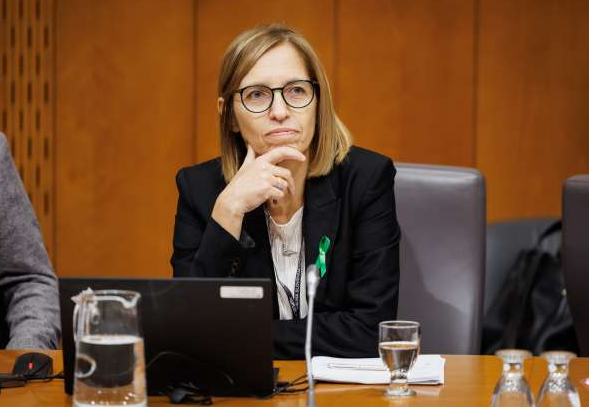By: A.H. /Nova24TV.si
Doctors employed in public healthcare will no longer be allowed to work for private providers, and a series of restrictions will be introduced for concessionaires, as Health Minister Valentina Prevolnik Rupel announced. The law is set to come into effect on January 1st of next year. The proposal has met with strong opposition from the Young Doctors association.
The government’s new healthcare reform will result in “the establishment of two healthcare systems – a public one for the poor and a private one for the privileged,” warn the young doctors, who emphasise that the reform will “irreversibly affect the lives and health of the citizens of Slovenia.”
The proposal for the reform was presented by the Minister of Health, and it has also drawn criticism from a Levica MP, who plans to submit a different law into the parliamentary procedure, with or without support, which was drafted together with the far-left civil initiative Voice of the People.
“The emperor has no clothes … and is clearly mad as well. The proposed Healthcare Services Act (ZZDej) accelerates the end of the public healthcare system. The consequence will be the establishment of two healthcare systems – a public one for the poor and a private one for the privileged,” expressed the Young Doctors on the social platform X. They added that many experts will leave, the accessibility of services covered by the Health Insurance Institute of Slovenia (ZZZS) will decrease, and the quality of care in public institutions will decline further.
“These are radical changes in healthcare. Unfortunately, not in the direction the Slovenian government is portraying. We hope that the media will dedicate a bit more critical thought to this issue, as it is complex and will irreversibly affect the lives and health of the citizens of Slovenia,” the Young Doctors further emphasised.
What does the reform bring?
Minister Prevolnik Rupel states that the reform introduces a separation of the public healthcare system from the private sector, which will prevent doctors employed in the public sector from working for private providers. In addition, it foresees the introduction of restrictions for concessionaires, while tax relief for doctors would be an incentive for their greater presence in public healthcare institutions. She believes that the current structure of Slovenian healthcare consists of public health institutions, concessionaires, and private providers, where healthcare services are only available for self-payers. The goal of the reform is to encourage doctors employed in public institutions to perform as much work as possible there, while limiting their work in the private sector. Under the new law, doctors in public institutions will no longer be allowed to provide self-paid services, nor will they be able to work through (part-time) sole proprietorships or limited liability companies.
They will be able to obtain permission to work for another employer, but only within another public institution, such as hospitals and health centres, and they will have to meet certain conditions to do so. The government also plans to introduce performance measurement for doctors during their regular working hours, and supervisors will have to monitor whether the doctor is fulfilling their obligations. Additionally, doctors will not be allowed to refuse overtime work before receiving permission to work elsewhere.
Major changes for concessionaires
The ministry, with the aim of “motivation”, would introduce lower tax burdens on service contracts. These tax reliefs will only apply to additional work within the primary public healthcare institution, where the institution will be exempt from the 25% tax on payments. Major changes are also in store for concessionaires, who will have to regularly employ doctors. The scope of their programme will depend on the number of regularly employed doctors. At the same time, concessionaires will no longer be able to resell concessions, and they will be required to accept patients. A three-month transitional period will allow concessionaires to arrange employment and contracts in accordance with the new rules. The Healthcare Services Act reform is just one of twelve laws that the Ministry of Health plans to amend as part of the healthcare reform. The bill will be submitted for public consultation next week, which is expected to last a month, with the ministry aiming for the law to take effect on January 1st of next year.
Radical MP from Levica and the Voice of the People with their own proposal
The bill has stirred controversy within the coalition as well. It has been criticised by the extreme MP Kordiš, who believes that the law continues the privatisation of public healthcare. He also attacked the government, arguing that it is not fulfilling its promises from the coalition agreement. Since, in his opinion, the reform does not meet the commitments, he plans to submit a proposal for a healthcare services act, prepared by the civil initiative Voice of the People, for parliamentary consideration.
Kordiš, due to his actions, caused a rift within the Levica party some time ago. He believes that the already radical party is not extreme enough in its approach. His party colleagues, who have almost completely isolated him from the party’s core, have publicly accused him of attempting to force certain personnel decisions. We wrote about the rift within the party – HERE and HERE.

